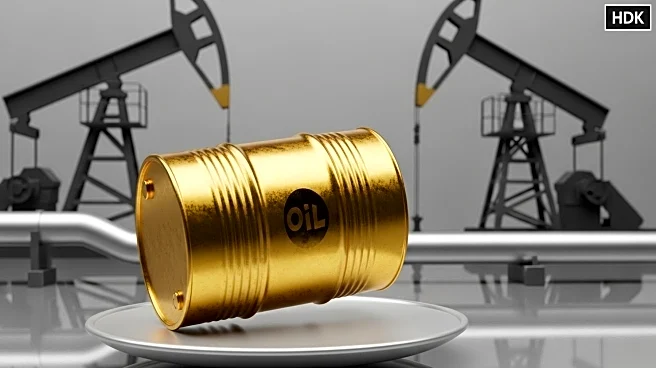What's Happening?
OPEC+ is nearing its production capacity limits, which could lead to significant oil price spikes in the event of a supply shock. The alliance, which includes major oil producers like Saudi Arabia, the UAE, and Iraq, has been gradually increasing production but is constrained by limited spare capacity. This situation leaves the market vulnerable to disruptions, such as geopolitical tensions in the Middle East or sanctions on Russia and Iran. Analysts warn that the market may be overestimating the available spare capacity, which could exacerbate the impact of any future supply shocks.
Why It's Important?
The limited spare capacity within OPEC+ could have significant implications for global oil prices and economic stability. If a major supply disruption occurs, the inability to quickly ramp up production could lead to sharp price increases, affecting industries reliant on oil and potentially slowing economic growth. Countries with high oil consumption, including the U.S., may face increased energy costs, impacting consumers and businesses. Additionally, geopolitical tensions could further destabilize the market, highlighting the need for diversified energy sources and strategic reserves.
What's Next?
OPEC+ may need to reassess its production strategies to mitigate potential supply shocks. This could involve exploring new investments in production capacity or strengthening alliances with non-OPEC producers. Meanwhile, countries dependent on oil imports might consider increasing their strategic reserves or investing in alternative energy sources to reduce vulnerability to price fluctuations. The situation also calls for close monitoring of geopolitical developments that could impact oil supply.









